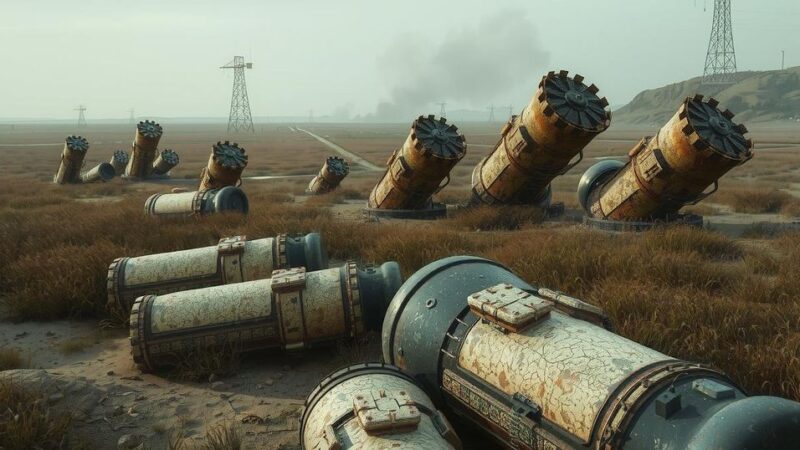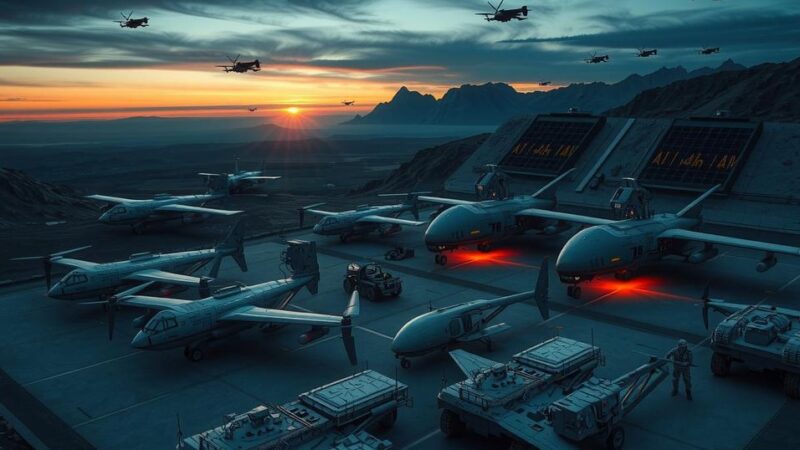Lebanon retaliates for gunfire from Syria following deadly clashes. President Aoun orders military response to escalating border violence linked to Hezbollah’s alleged actions. Reports indicate casualties on both sides, and Lebanon seeks international support for military aid amid increased tensions.
On Monday, Lebanon’s President Joseph Aoun ordered military retaliation against gunfire originating from Syria following deadly clashes along the border. This escalation was triggered by Syria’s interim government accusing the Lebanese militant group Hezbollah of infiltrating into Syrian territory, where it allegedly abducted and killed three soldiers on Lebanese soil. This incident marks the most severe cross-border conflict since the ousting of former Syrian President Bashar Assad in December.
According to reports from a Syrian news channel, an unnamed Defense Ministry official revealed that the Syrian army launched shelling on Hezbollah positions, resulting in casualties among Syrian soldiers. In contrast, Hezbollah denied any involvement in the incident. Lebanon’s Information Minister Paul Morkos reported during a Cabinet meeting that the deceased individuals were actually smugglers, while also noting that a child was killed and six others sustained injuries on Lebanese territory.
The Syrian Observatory for Human Rights, a UK-based monitoring organization, reported the death of five Syrian soldiers amid the violence. Footage circulating online displayed families fleeing towards the Lebanese town of Hermel. By Monday evening, fighting intensified near Hermel, prompting President Aoun to assert, “What is happening along the eastern and northeastern border cannot continue … I have given my orders to the Lebanese army to retaliate against the source of fire”.
President Aoun has also tasked Lebanon’s foreign minister, who is currently in Brussels at a donors conference for Syria, to reach out to Syrian officials to find a resolution and to prevent further escalation. In recent days, tensions have surged between the Syrian military and Lebanese Shiite clans that are closely aligned with the Assad regime based in Lebanon’s Al-Qasr border village.
Reports indicate that these clans were implicated in the abductions that triggered the recent hostilities. Efforts have been made by both the Lebanese and Syrian armies to establish communication lines aimed at easing the rising tension. Large numbers of Lebanese troops have been deployed to the bordering area, and the military has confirmed the return of the bodies of the three slain Syrians.
Additional local media reports indicated continued low-level skirmishes early on Monday resulting from an attack on a Syrian military vehicle, although the extent of casualties was unclear. Furthermore, early reports emerged of four Syrian journalists, who were embedded with the Syrian military, sustaining minor injuries from shells fired from the Lebanese side that struck their position, leading them to accuse Hezbollah of the attack.
Senior Hezbollah legislator Hussein Haj Hassan claimed during an interview that fighters from the Syrian side were encroaching upon Lebanese territory and attacking border villages, particularly in the northeastern Baalbek-Hermel region, which has witnessed significant clashes. Amidst continuing instability, Lebanon is actively seeking international assistance to enhance military funding as it progressively deploys troops along its porous borders with Syria and Israel.
In summary, Lebanon’s response to recent cross-border violence has raised tensions significantly along the Syrian border. President Aoun’s directive for military retaliation highlights the seriousness of the situation. With reports of casualties and ongoing skirmishes, efforts to restore stability through diplomatic communication with Syrian authorities remain crucial. Lebanon’s deployment of troops alongside a plea for international military support underscores the challenges it faces in managing border security amid escalating violence.
Original Source: www.stltoday.com






